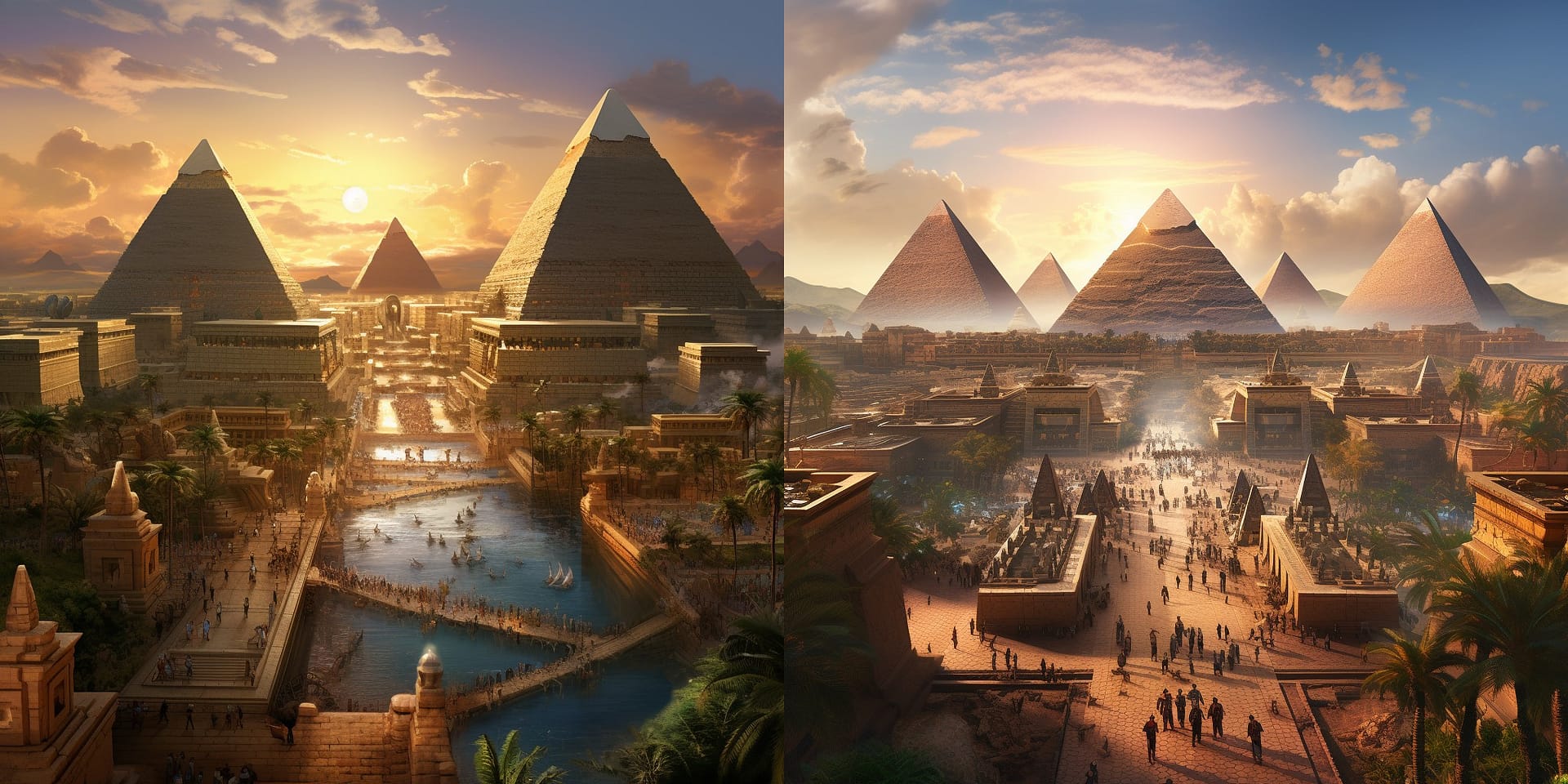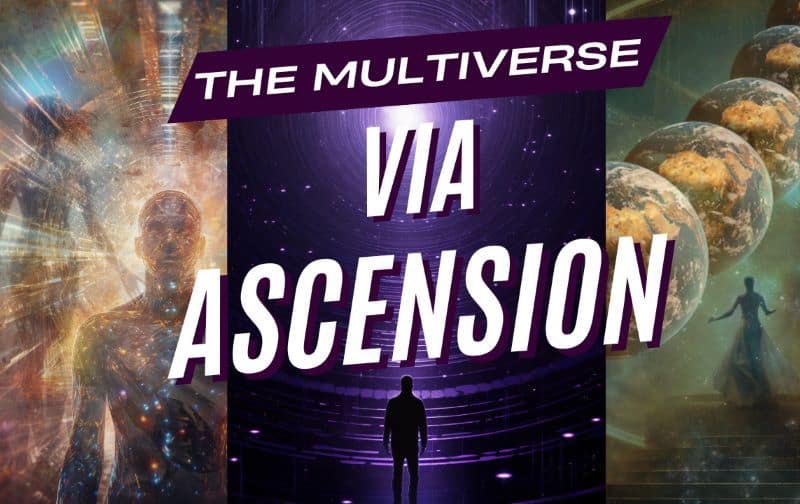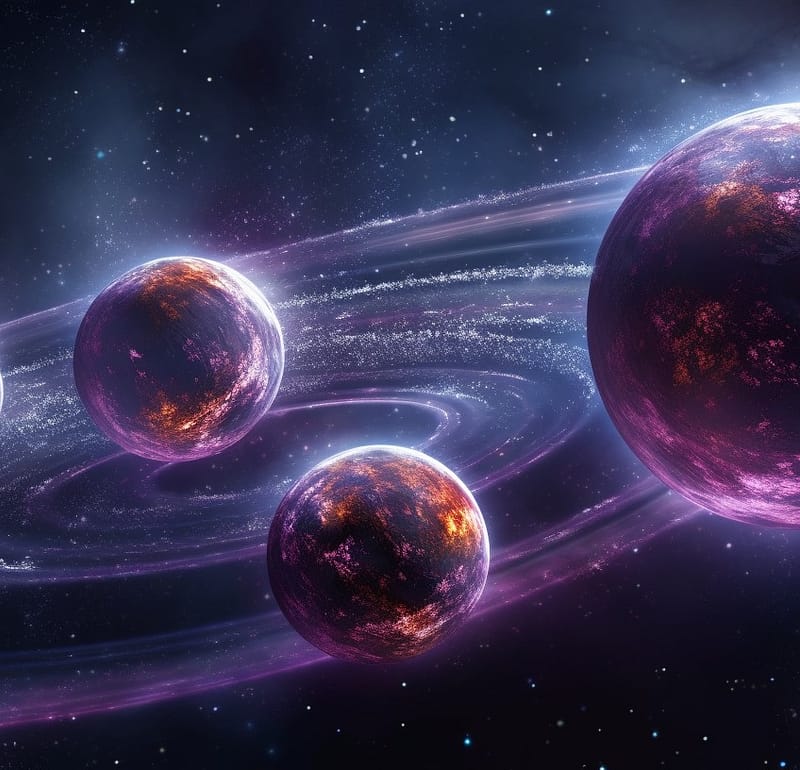Ancient civilizations have long understood the existence of the multiverse and have documented their knowledge and wisdom through various forms of art, literature, and scientific observations. From the ancient Greeks to the Mayans, many civilizations have explored the concept of multiple universes and parallel realities.

Understanding ancient civilizations and their knowledge of the multiverse can provide valuable insights into our own understanding of the universe. Many ancient civilizations believed in the existence of multiple worlds and parallel realities, which is similar to the current scientific theories of the multiverse. By studying the wisdom of these civilizations, we can gain a deeper understanding of the universe and our place within it.
The relevance of ancient civilizations’ knowledge and wisdom of the multiverse in modern science is becoming increasingly apparent. As scientists continue to explore the universe and develop new theories, they are finding that many of these theories align with the beliefs of ancient civilizations. This highlights the importance of studying the wisdom of these civilizations and integrating their knowledge into modern scientific research.
Key Takeaways
- Ancient civilizations have long understood the existence of the multiverse and have documented their knowledge and wisdom through various forms of art, literature, and scientific observations.
- Understanding ancient civilizations and their knowledge of the multiverse can provide valuable insights into our own understanding of the universe.
- The relevance of ancient civilizations’ knowledge and wisdom of the multiverse in modern science is becoming increasingly apparent.
Understanding Ancient Civilizations
Ancient civilizations have long been recognized for their knowledge and wisdom of the universe. They have made significant contributions to the understanding of the multiverse, which is the concept of multiple universes existing simultaneously. This section will explore the knowledge of two ancient civilizations, the Egyptians and the Mayans, and their understanding of the multiverse.
Egyptians and the Multiverse
The ancient Egyptians believed in the existence of multiple universes. They believed that the universe was divided into three parts: the heavens, the earth, and the underworld. The heavens were the realm of the gods, the earth was the realm of humans, and the underworld was the realm of the dead. The Egyptians believed that each of these realms was connected and that they could travel between them.
The Egyptians also believed in the concept of the afterlife and that the soul could travel through the multiverse after death. They believed that the soul could travel to different realms and even different universes in the multiverse. The Book of the Dead, a collection of spells and prayers, was created to help guide the soul through the afterlife and the multiverse.
Mayans and Cosmic Knowledge
The Mayans were another ancient civilization with a deep understanding of the universe and the multiverse. They believed that the universe was made up of multiple levels, each with its own gods and rulers. They believed that these levels were connected by a cosmic tree, which was the axis of the universe.
The Mayans also had a complex calendar system that was based on the movements of the stars and planets. They believed that these movements were connected to the gods and that they could use them to predict the future. They also believed that the gods could communicate with them through these movements.
In conclusion, ancient civilizations such as the Egyptians and the Mayans had a deep understanding of the multiverse and its complexities. Their knowledge and wisdom have influenced modern-day thinking and continue to inspire new discoveries and ideas.
Wisdom of Ancient Civilizations
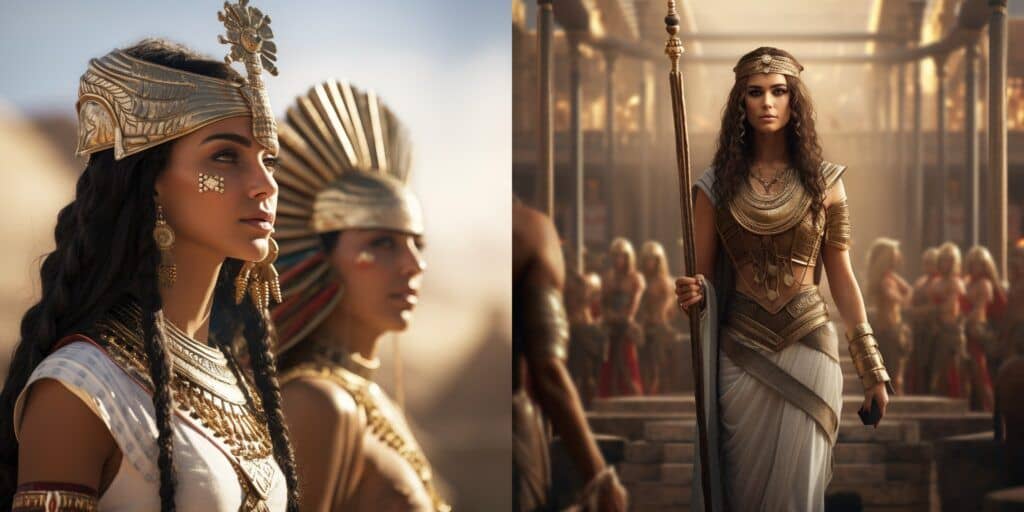
Ancient civilizations have long understood the existence of the multiverse, and their knowledge and wisdom have been passed down through generations. The Greeks, Indians, and many other ancient civilizations had their own philosophical and spiritual interpretations of the multiverse.
Greek Philosophical Interpretations
The ancient Greeks believed that the universe was infinite and eternal. They believed that there were multiple worlds and that each world had its own set of gods and goddesses. The Greek philosopher Democritus was one of the first to propose the idea of an infinite number of parallel universes. He believed that each universe was separated by a void and that they were constantly moving and changing.
Aristotle, another Greek philosopher, believed that the universe was made up of five elements: earth, water, air, fire, and aether. He believed that the universe was finite and that there was only one world.
Indian Vedantic Insights
The ancient Indian civilization had a deep understanding of the multiverse, which was reflected in their philosophy and spirituality. The Vedas, the ancient Indian scriptures, describe the universe as being made up of multiple worlds.
According to Vedantic philosophy, the universe is divided into three realms: the physical world, the astral world, and the causal world. Each of these realms is made up of multiple planes of existence, and each plane has its own set of beings and consciousness.
The ancient Indian sages also believed in the concept of reincarnation, which meant that the soul could travel through different planes of existence in the multiverse. They believed that the ultimate goal of life was to achieve liberation from the cycle of birth and death and merge with the ultimate reality.
In conclusion, the wisdom and knowledge of ancient civilizations have provided us with a deep understanding of the multiverse. The Greeks and the Indians had their own philosophical and spiritual interpretations of the multiverse, which have been passed down through generations and continue to influence our understanding of the universe today.
Relevance in Modern Science
The knowledge and wisdom of ancient civilizations have been found to be relevant in modern science, particularly in the field of physics. One of the most fascinating areas of study in modern physics is the theory of the multiverse. This theory suggests that there are multiple universes, each with its own unique properties and laws of physics.
Ancient civilizations, such as the Hindu and Buddhist cultures, have long understood the existence of the multiverse. The concept of multiple universes can be found in Hindu mythology, where it is believed that there are many worlds or lokas. Similarly, Buddhist cosmology describes a universe with many worlds or realms, each with its own unique characteristics.
The relevance of ancient wisdom in modern science can be seen in the way that physicists are exploring the concept of the multiverse. The idea of multiple universes has been proposed as a solution to some of the fundamental problems in physics, such as the fine-tuning problem and the measurement problem.
The fine-tuning problem refers to the fact that the laws of physics in our universe are finely tuned to allow for the existence of life. The probability of this happening by chance is extremely low, leading some physicists to propose the idea of a multiverse, where there are many different universes with different laws of physics.
The measurement problem refers to the fact that the act of observation affects the outcome of an experiment. This has led some physicists to propose the idea of a multiverse, where each observation creates a new universe with a different outcome.
In conclusion, the knowledge and wisdom of ancient civilizations have proven to be relevant in modern science, particularly in the field of physics. The concept of the multiverse, which has its roots in ancient Hindu and Buddhist cosmology, is now being explored by physicists as a possible solution to some of the fundamental problems in physics.
Frequently Asked Questions
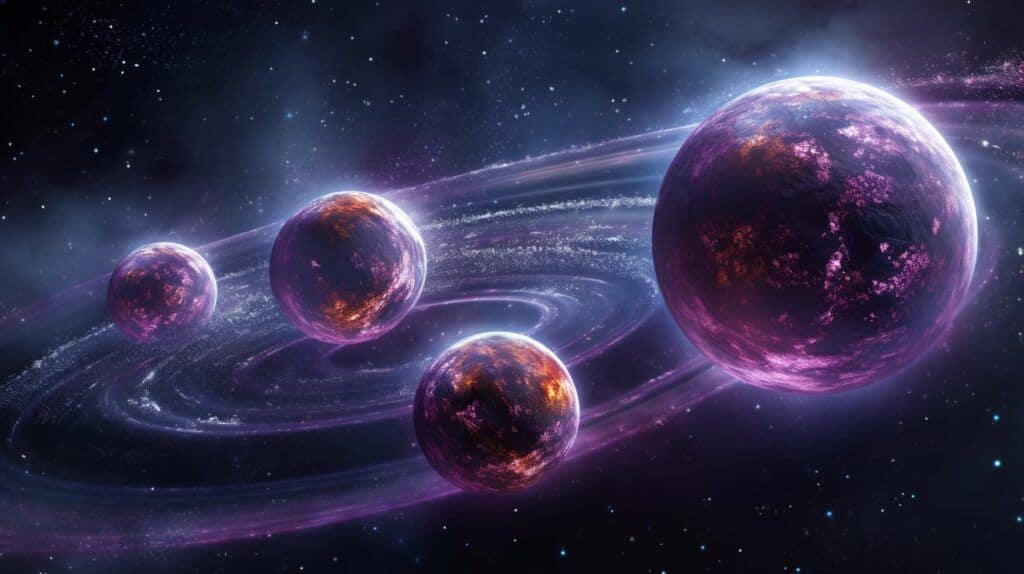
How did ancient civilizations explain the existence of the multiverse?
Ancient civilizations had various beliefs and explanations for the existence of the multiverse. For instance, the Babylonians believed in a cosmic ocean that separated different universes, while the Hindu scriptures described multiple universes within a cosmic egg. The Greeks believed in the concept of a “cosmos” or an ordered universe, but also believed in the existence of other worlds and dimensions beyond the physical realm.
Did ancient Greeks have any knowledge of the multiverse?
Yes, the ancient Greeks had a concept of the multiverse or “polyverse,” which they called “Polycosmos.” This concept was described in the works of the philosopher Empedocles, who believed that there were multiple worlds or universes that existed alongside our own. The idea of the multiverse was also explored by other Greek philosophers such as Anaximander and Democritus.
What is Polycosmos and how does it relate to ancient wisdom and beliefs?
Polycosmos is the ancient Greek concept of the multiverse or multiple universes. It is related to ancient wisdom and beliefs because it reflects the understanding that there is more to the universe than what can be observed with the naked eye. The concept of the multiverse also reflects the idea that there are many dimensions and realities beyond our own, which is a common theme in many ancient cultures and belief systems. The concept of Polycosmos also highlights the importance of imagination and creativity in ancient wisdom, as it required the ability to think beyond the physical world and imagine the existence of other universes and dimensions.
Conclusion
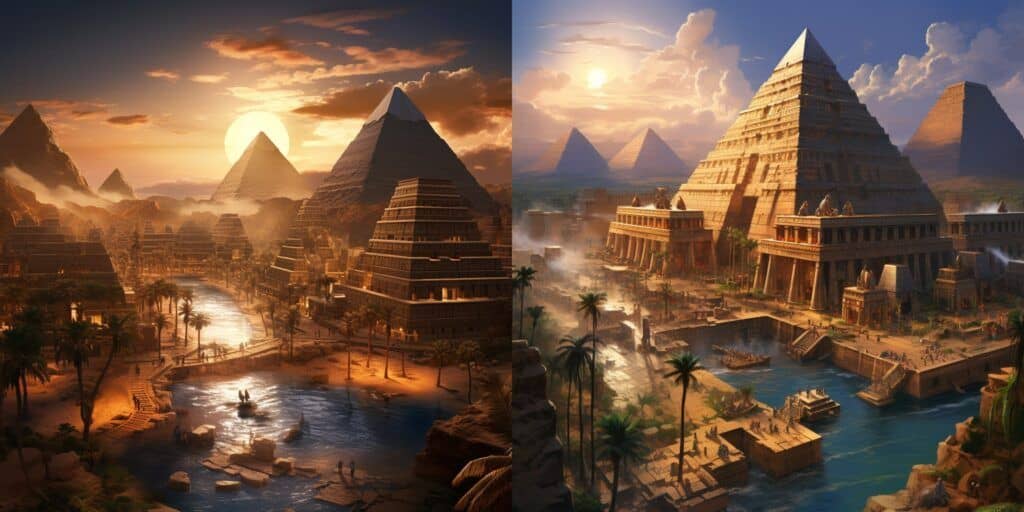
In conclusion, ancient civilizations have long understood the existence of the multiverse. They had a deep understanding of the cosmos and the interconnectedness of all things. Through their observations and contemplations, they came to the realization that there are multiple universes beyond our own.
Their knowledge and wisdom have been passed down through the ages, and it continues to be studied and expanded upon by modern scientists and philosophers. The concept of the multiverse has become a topic of great interest in recent years, and it has led to new discoveries and theories.
The understanding of the multiverse has also had a profound impact on our understanding of ourselves and our place in the universe. It has challenged our notions of reality and opened up new possibilities for exploration and discovery.
Overall, the knowledge and wisdom of ancient civilizations continue to inspire and inform our understanding of the world around us. Through their insights and observations, we are able to gain a deeper appreciation for the complexity and interconnectedness of the universe.
Related Resources:
[▶️] Quantum Physics: The Science That Defies All Logic | Secrets Of Quantum Physics | Progress
[▶️] “What If You Could Access the TENTH Dimension?” | 10D Explained
[▶️] Ancient Civilizations, Multiple Dimensions, Aliens & Time with 19 Keys & Billy Carson
📝 The Multiverse Is an Ancient Idea
📝 Check my short article about Exploring the Multiverse: A Journey Beyond Our Reality via Ascension

